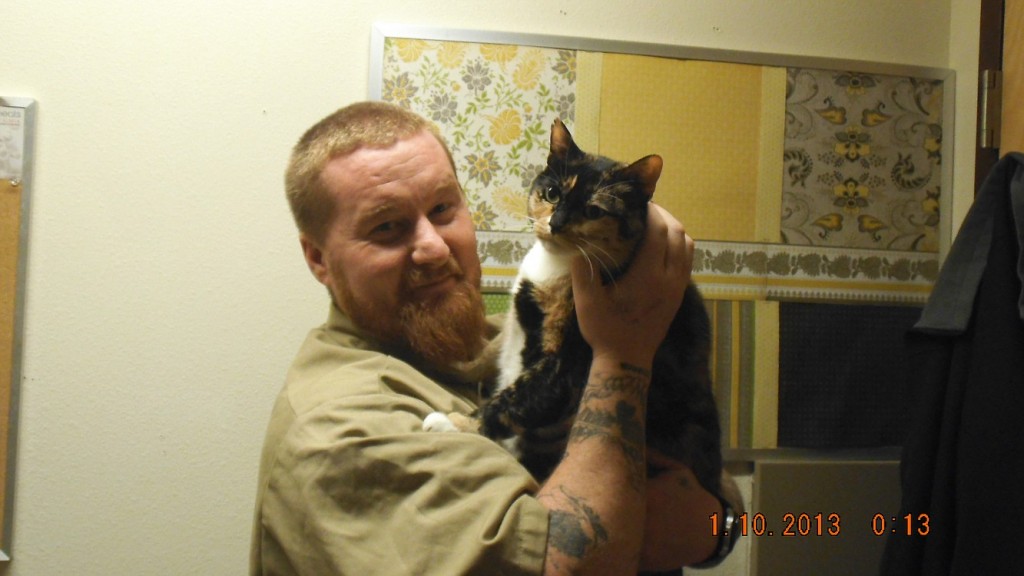James Resop is learning patience through a cat adoption program at Larch Corrections Center.
Resop, a 39-year old inmate in the minimum security facility, in Yacolt, said he is enjoying learning what “his” cat likes and dislikes and being responsible for something other than himself.
Challenges include getting Butterfly, the cat, to exercise.
“Butterfly loves ice water and has mood swings,” Resop said.
Monique Camacho, a classification counselor 2 at Larch, is the coordinator of the cat adoption program. She is responsible for all of the cats and handlers, and she works directly with the partner organization.
Up until recently, Larch partnered with Cuddly Catz, an organization that was created to support the center’s cat adoption program. A contract with the West Columbia Gorge Humane Society, of Washougal, is in the works.
Camacho said volunteers help teach general handling and cat behavior, and they take cat supplies to Larch.
“They also monitor and track progress for each cat,” she said. “They are wonderful, and I couldn’t do it without them.


